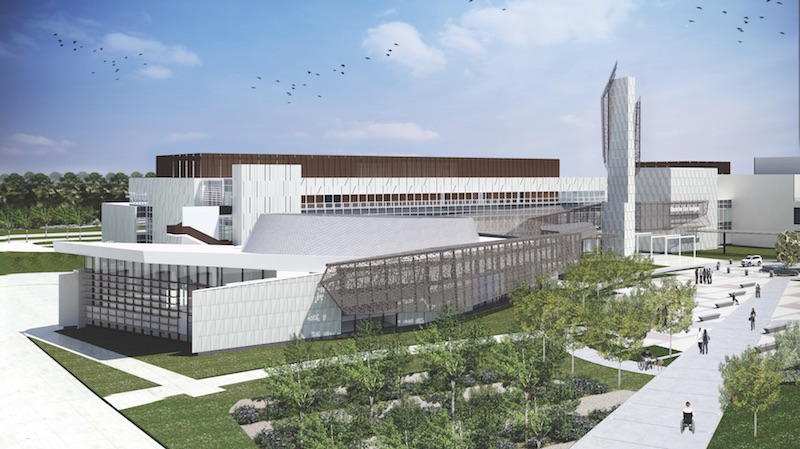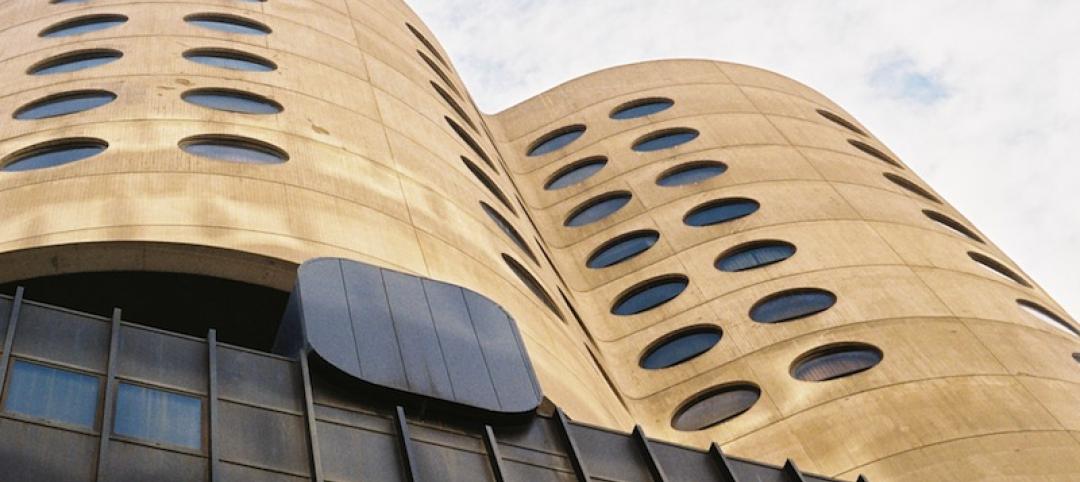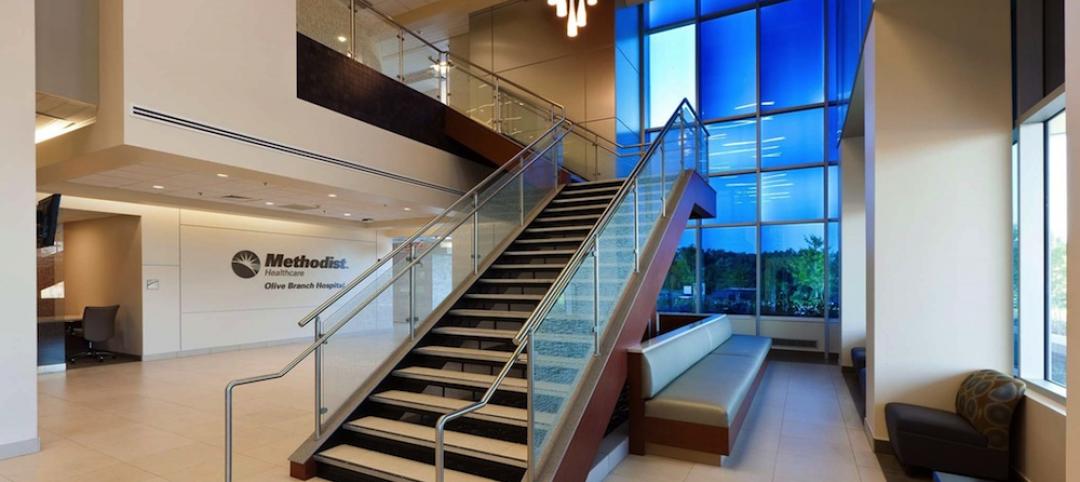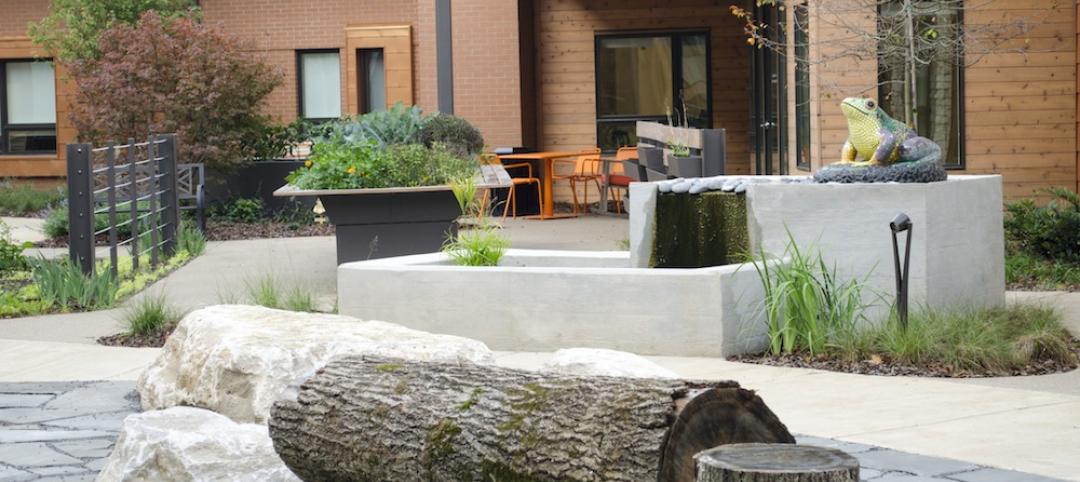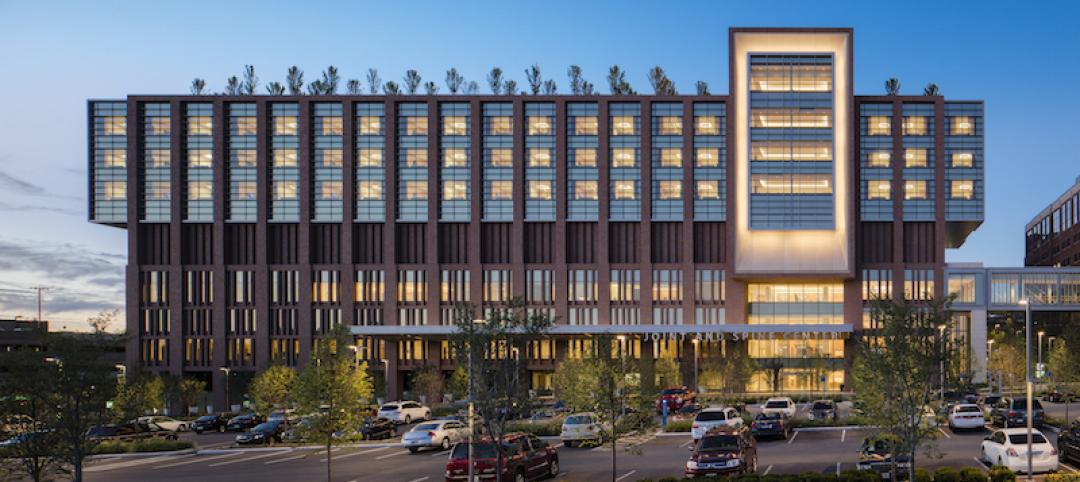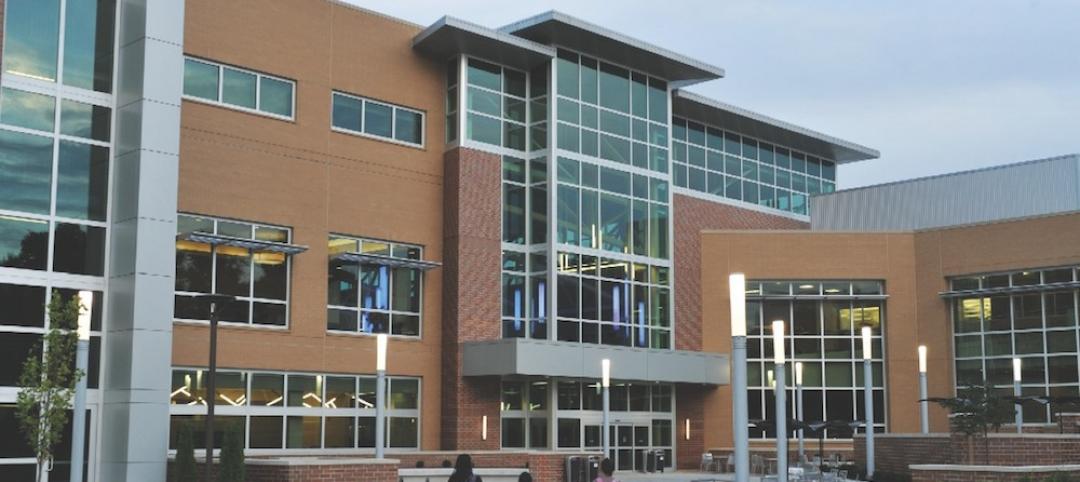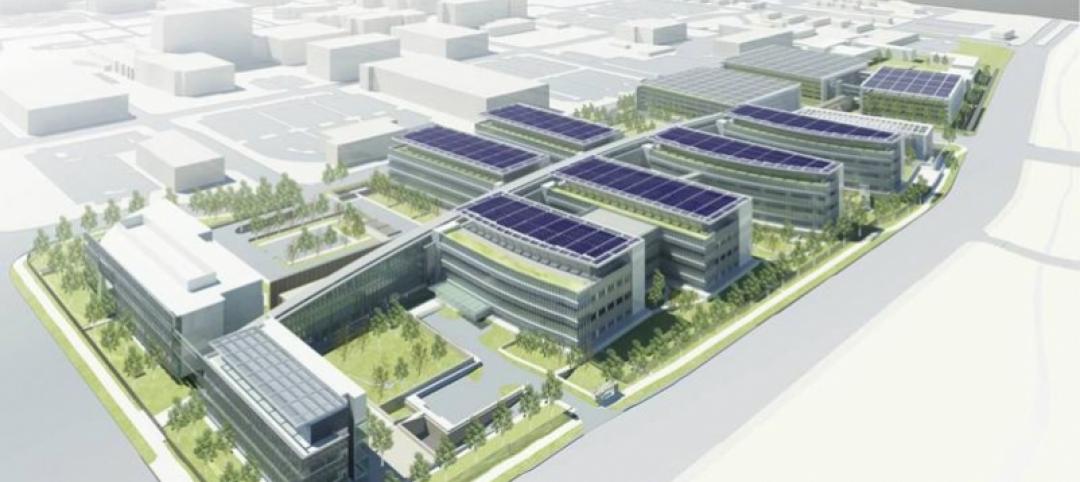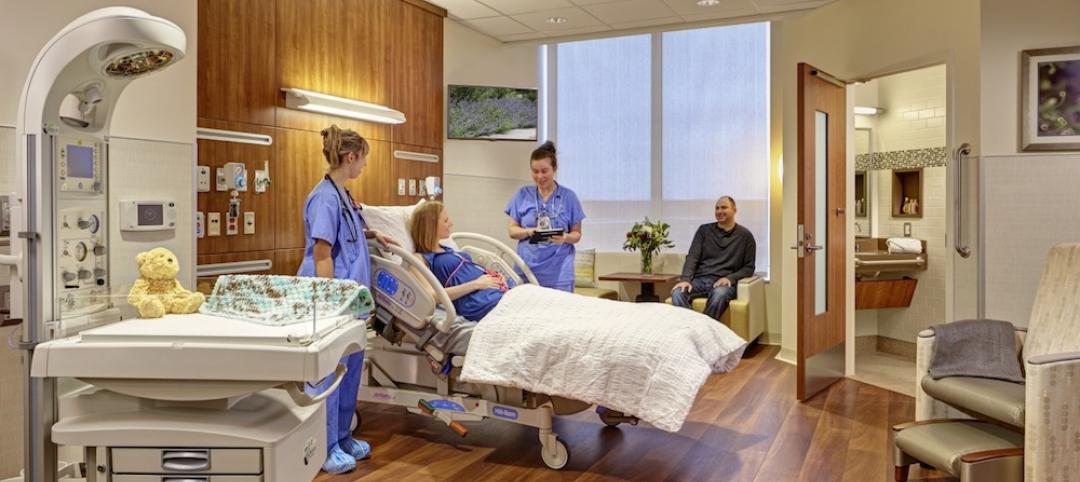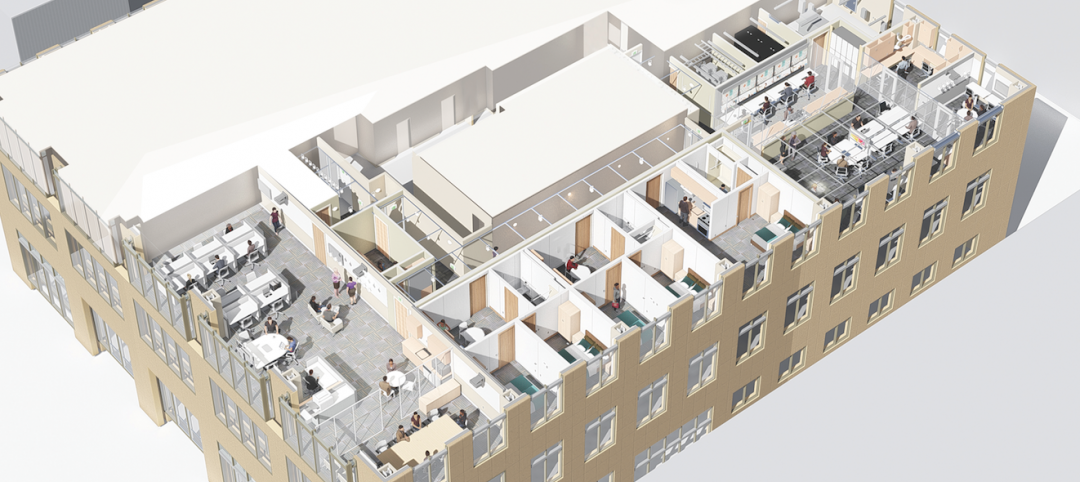The connection between the outdoors, health, and wellness has been gaining validity and acceptance within the design and medical communities. One of the fullest expressions of this nexus is occurring at Rancho Los Amigos National Rehabilitation Center, in Downey, Calif., the renowned recovery and rehab facility for patients with spinal cord and brain injuries, orthopedic disabilities, strokes, neurological disorders, and physical and developmental disorders.
The hospital’s ongoing $418 million revitalization and beautification, which is scheduled for completion in 2020, includes the renovation of its existing inpatient hospital, whose expansion will link it to a new outpatient building. A new wellness and aquatic therapy center already has opened, 15 months ahead of schedule.
But what makes this design-build project different will be the transformation of the facility’s entire campus into an outdoor recovery zone that encompasses a healing garden, therapy gardens, and terrain park.
Bonnie Khang-Keating, Principal and Vice President with SmithGroupJJR, the project’s lead designer, explains that the hospital—which is owned by Los Angeles County and has been in operation since 1888—has been serving the community from mostly older, modular buildings. By stacking those buildings vertically as part of the revitalization, and by adding a parking garage, SmithGroupJJR and Taylor Design, the project’s architect of record, gained considerable open space, which she estimates will account for 30–40% of the total campus.
Existing buildings and hardscape are being replaced with new dual-purpose outdoor spaces, healing gardens and terraces, and large plazas and amphitheaters that will also serve as physical therapy and terrain parks. “The hospital wants to hold events outside, like wheelchair basketball and Special Olympics,” says Khang-Keating.
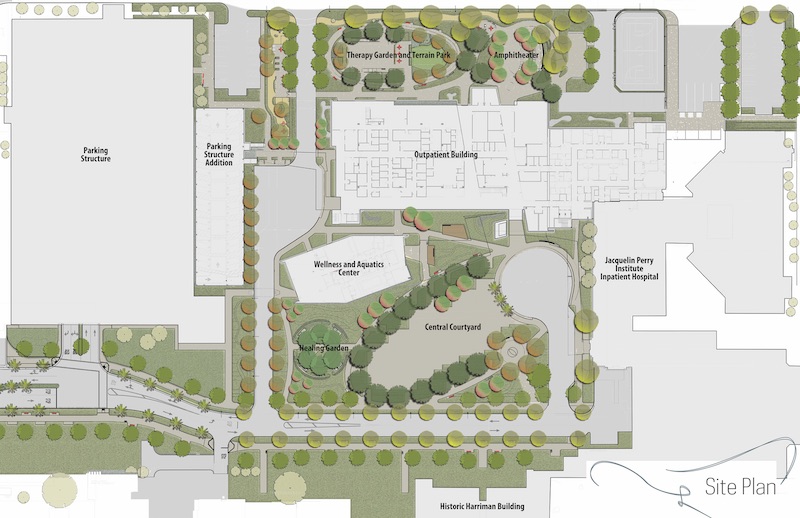 SmithGroupJJR and landscape architect KSA Design Studio's layout of the rehab center surrounds new and existing buildings with a variety of outdoor environments. Image: SmithGroupJJR.
SmithGroupJJR and landscape architect KSA Design Studio's layout of the rehab center surrounds new and existing buildings with a variety of outdoor environments. Image: SmithGroupJJR.
Taken together, the 29,170-sf therapy garden, the 8,400-sf horticultural garden, the 21,740-sf amphitheater, and the 8,790-sf sports court will account for 1.56 acres of open space on the hospital premises.
KSA Design Studio, the project’s landscape architect and a member of its design-build team, has focused on selecting the types of plants, ground cover, and other materials that would be used.
Khang-Keating notes that Rancho Los Amigos is unique among hospitals in that all of its outdoor-rehab activities are on the ground floor, which has the benefit of encouraging and expanding patients’ mobility. SmithGroupJJR programmed every foot of outdoor space with the expectation that it would be used every day, says Khang-Keating.
One of the goals of the design is to allow patients to learn to adapt to external conditions they will face once they’re discharged. Many former patients also return to the campus to mentor current patients.
Large sliding doors that line the entire wall of the outpatient therapy gyms further blur the boundary between indoor and outdoor space.
Because landscaping is usually the last thing that gets installed on a project, it can become an afterthought and get reduced or cut completely when budgets get tight.
But Khang-Keating says Rancho Los Amigos championed the indoor-outdoor concept right from the start. She says this is especially true of its CEO, Jorge Orozco, who started working at the hospital as a physical therapist in 1989.
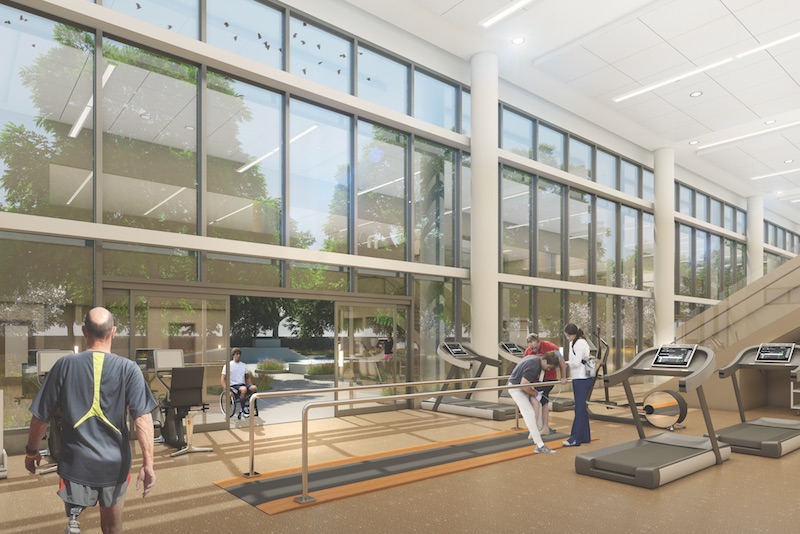 In the ground-floor gym (below), glass partitions blur the divide between indoors and outdoors. Image: SmithGroupJJR.
In the ground-floor gym (below), glass partitions blur the divide between indoors and outdoors. Image: SmithGroupJJR.
Related Stories
Healthcare Facilities | Mar 11, 2016
Report: Hospitals’ fossil fuel use trending downward, but electricity consumption hardly declining
A new survey from engineering firm Grumman/Butkus Associates examines electricity, fossil fuel, water/sewer, and carbon footprint of healthcare facilities.
Office Buildings | Mar 9, 2016
CBRE: Workplace wellness on the rise
As insurance premiums and deductibles continue to rise, both employees and employers are evaluating options to improve their wellbeing, writes CBRE Healthcare Managing Director Craig Beam.
Healthcare Facilities | Mar 7, 2016
Can 'active' building designs make people healthier?
The new high-performance Kaiser Permanente facility in Anne Arundel County, Md., uses the built environment to improve the overall health of its occupants, writes GS&P's Terrance Perdue.
Healthcare Facilities | Mar 4, 2016
Building a home where Alzheimer’s patients can thrive
Skanska recently completed Abe’s Garden in Nashville, Tenn., a memory care community designed to improve the lives of those affected by Alzheimer’s disease. Skanska's Senior Project Manager Jeff Elpers has more on the facility.
Healthcare Facilities | Mar 1, 2016
Christ Hospital in Cincinnati brings its joint and spine care services under one roof
The opening coincides with agreements that make this center a preferred provider for several employers with self-funded healthcare plans.
Healthcare Facilities | Feb 24, 2016
Healthcare providers must retool operations in post-ACA world
As healthcare organizations make the transition from sick care to well care, they’re learning how to stretch their resources and make smarter decisions about real estate.
Healthcare Facilities | Feb 19, 2016
U.S. House moves to give Army Corps of Engineers management of V.A. projects
Bill would also put restrictions on planning and design funding.
Healthcare Facilities | Feb 19, 2016
Early trends in healthcare for 2016
Fighting cancer, Design-Led Construction (DLC), and health sciences education are among the new efforts and developments, writes Cannon Design's Deb Sheehan.
Market Data | Feb 10, 2016
Nonresidential building starts and spending should see solid gains in 2016: Gilbane report
But finding skilled workers continues to be a problem and could inflate a project's costs.
Game Changers | Feb 5, 2016
Mayo Clinic's breakthrough research lab puts evidence-based design to the test
Mayo teams up with Delos to bring hard science to EBD research.


